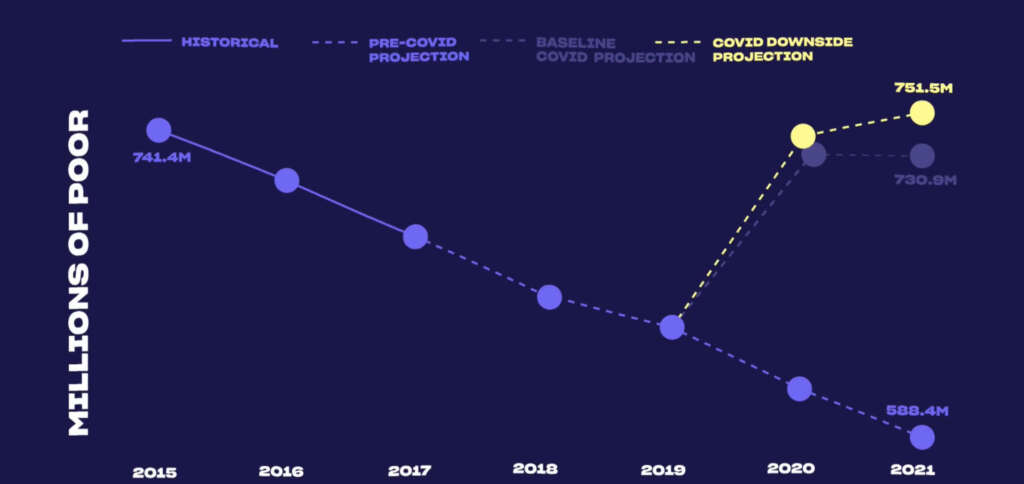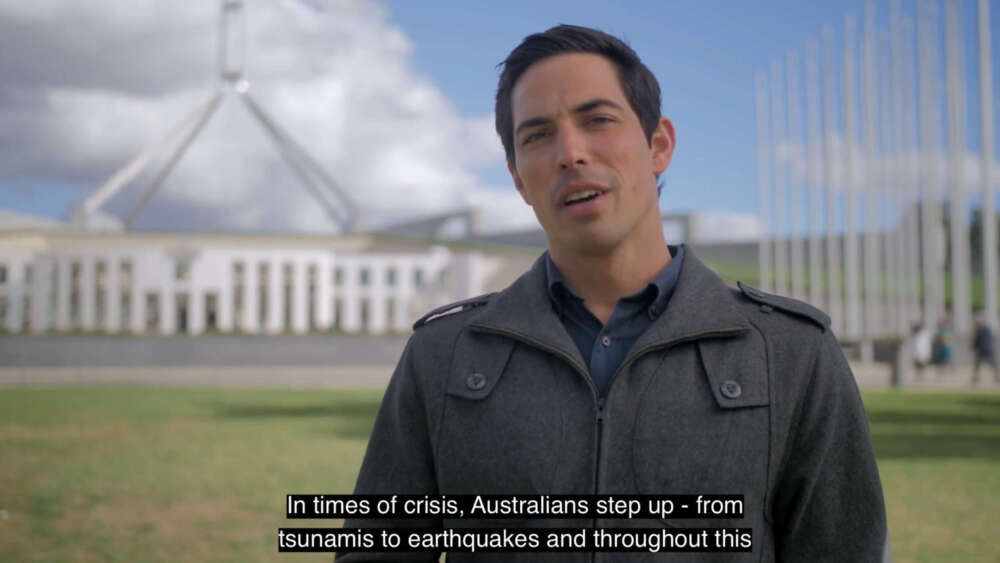3 things Australia should do to stop COVID's spread in poor countries
Australia can play its part in stopping the spread of COVID-19 in the world’s poorest countries – but it’s going to take a bigger investment than the one announced in this year’s budget last week.
“The Australian Government has announced it will provide more than $4.3 billion of vital aid support, focussed on helping our closest neighbours respond to the devastation of COVID-19,” Matt Darvas explains in a Micah Australia video providing a budget wrap-up.
“This includes $37.1 million of new funding towards India’s COVID crisis for essential medical supplies and a commitment to provide 10,000 doses of Australian-made COVID-19 vaccines to our closest neighbours in the Pacific and Timor-Leste.”
Yet, while this initial response and the Australian Government’s ‘Partnerships for Recovery’ strategy is worthy of commendation, Darvas says a more comprehensive commitment to addressing COVID-19 is needed.

Extreme poverty is set to rise for the first time in 20 years, due to COVID-19. Source: Micah Australia’s budget response wrap-up video, showing data from modelling by the World Bank.
“To put this in context, after Australia’s aid generosity reached an historic low in 2019, Australia really stepped up in 2020 by announcing over $1.3 billion in new and additional temporary measures to help our neighbours access vaccines and respond to the pandemic. These announcements reflected the first increase in Australia’s aid budget we had seen in more than six years and we strongly thanked the government for it,” he says.
But recent modelling by the World Bank shows that COVID-19 has had a catastrophic effect on the world’s poor and is actually reversing years of hard work by the international community to fight poverty. For the first time in 20 years, the number of people living in extreme poverty is increasing.
“Before the pandemic, the number of people living in extreme poverty had been steadily declining for more than 20 years, as more than 1 billion people were lifted out of harsh economic deprivation,” Darvas says. “That incredible progress has now been thrown in reverse.”
The world’s health experts and development agencies know how to stop the spread of COVID-19 and address its devastating impacts on a country’s economy – but they need the resources to do it.
So – to put it simply – the Australian Government is going to need to do more than it has already committed to.
“This crisis has shown our government is capable of taking bold steps on an ‘as needed’ basis, to address both domestic and global challenges, which is a good thing,” Darvas says.
So what, specifically, would Micah like to see the Australian Government do?
- Commit $200 million at the Gavi COVAX AMC Summit being hosted by Japan in June. (The Gavi COVAX AMC is an international framework for ensuring equitable access to COVID-19 vaccines, regardless of income levels);
- Provide an immediate $150 million famine prevention package to the world’s conflict and hunger hotspots;
- Continue to increase our investment in strengthening health systems in our region.
And what can the average Aussie Christian do to see this happen?
Firstly and most importantly, Christians can pray and ask God to intervene, heal the sick and provide wisdom to the world’s leaders.
Secondly, Micah is asking Aussie Christians to raise their own voice in support of Australia taking decisive action to end COVID for all.
And doing that is a simple as signing their pledge, sharing their video on social media, and tagging local MPs to make them aware of your views.
Email This Story
Why not send this to a friend?




